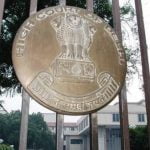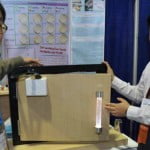Flawed business model, immature market weighed heavily on the venture: Dealer
JSW Group has shut down JSW Forma, its furniture business, in less than a year after its grand launch in April 2019.
JSW Living, the holding company of the furniture business, had announced plans to invest up to ₹250 crore over five years to become a leading steel furniture company. It had set itself a sales target of ₹50 crore in the first year.
JSW Forma had adopted an asset-light model, outsourcing production to two entities in Nagpur and Bhiwandi, on the outskirts of Mumbai. The company’s products started at ₹19,000 and were available at 62 outlets.
‘Flawed’ business model
A flawed business model and an immature market for steel furniture forced the company to shut down the venture, said a dealer associated with the company.
It took more than five years for an established global furniture player like IKEA to open its first store in India. The Swedish company had received regulatory permission to enter India in 2013, but opened its first outlet, in Hyderabad, only in 2018.
In contrast, Tata Steel is planning to offer several new products such as doors, windows, modular housing and furniture. Currently, the company sells 8,000 steel doors a month and targets to sell 30,000 doors.
JSW Steel refused comment on the development. The steel furniture business was spearheaded by Tarini Jindal Handa, daughter of Group Chairman and promoter Sajjan Jindal.
Forma planned to buy steel from JSW Steel to make the products.
Corrective measures
Unlike other conglomerates, the JSW Group has never shied away from recognising a wrong business decision and taking corrective measures before the damage got too big, said sources tracking the group’s investments in recent times. Earlier, it had dropped plans to enter the electric vehicle business even while pumping in more money into the struggling JSW Energy arm.
On the reasons for quitting the EV business, Sajjan Jindal, in a recent interview with BusinessLine, had said the group had planned to buy the General Motors plant in Pune and convert it into an EV manufacturing unit, but it did not work out. Moreover, he added, the EV business in India was in a nascent stage and a lot of missing pieces needed to evolve, which would take substantial time.
Asked whether the Group would have done anything differently if it had edged out ArcelorMittal to buy the Ilva steel plant in Italy, Jindal quipped that there was probably a third force that diverted the deal and ‘saved’ the group.
In 2018, as the sole bidder, JSW Steel had won the Ilva plant, but the bidding process was called off by the Italian government in the hope of getting better bids. ArcelorMittal, which acquired the plant in the second round of bidding, is now struggling to hand it over back to the government, besides seeking concessions to turn around the business.











